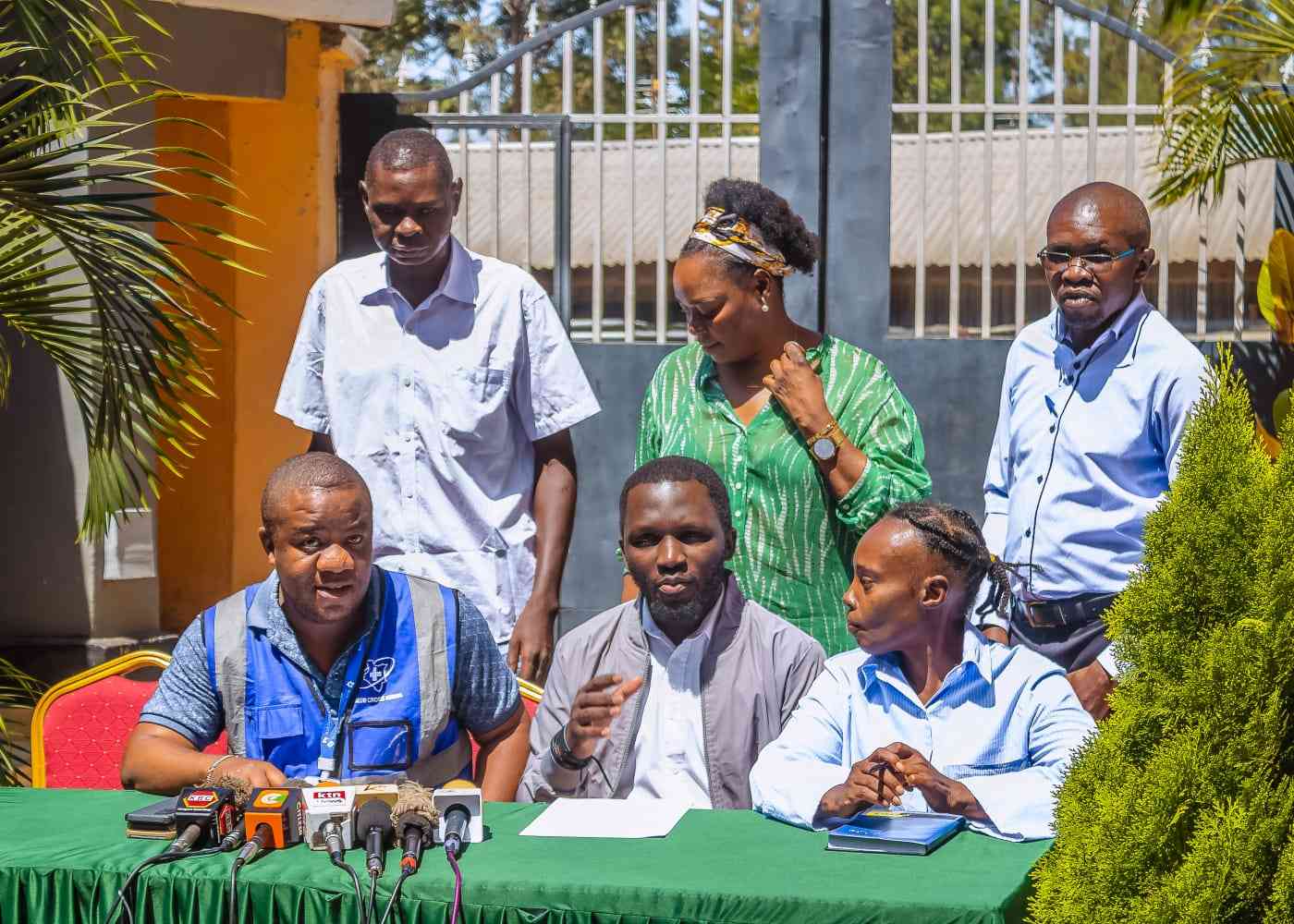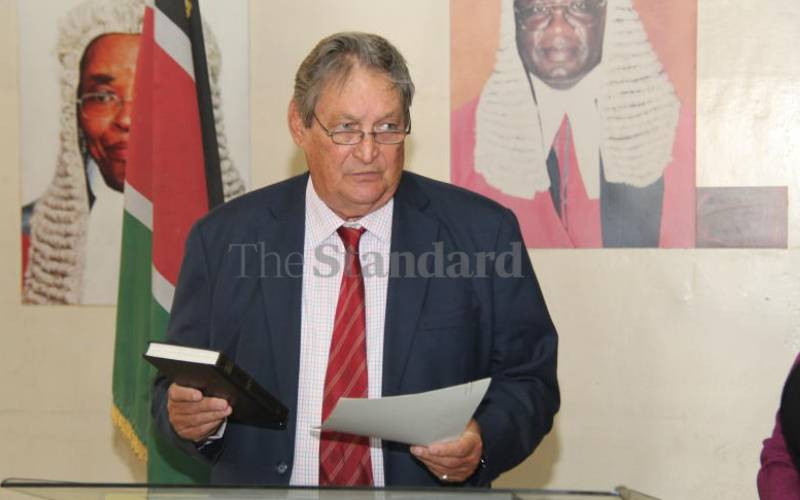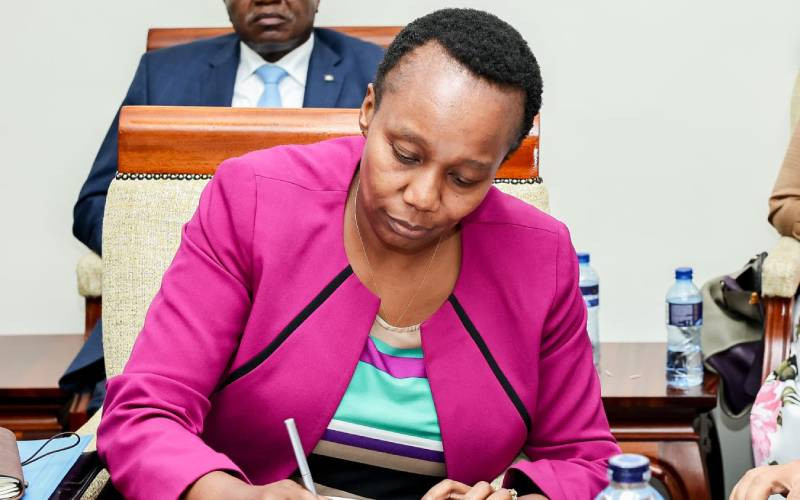By Dann Okoth
Alarmed at the slow pace of implementation of the Constitution, civil society groups are re-emerging to reclaim their once vibrant voice in the reform agenda.
Under the banner of the slogan Kenya Tuitakayo, the Kenya We Want, Katiba Mpya, the Citizen Coalition for Constitutional Culture (4Cs-Trust) is spearheading the push to restore the civil society’s lost glory in the entrenchment of the new constitutional order.
The 4Cs-Trust is nudging other civil society groups to form linkages with the Constitution Implementation Commission, the Law Reform Commission, the Attorney General’s office, Parliament, and other constitutional organs for a more robust approach to tackling challenges of the reform process.
Chief Justice Willy Mutunga was one of the founders of the 4Cs-Trust, which in the early 1990s was in the forefront of proposing an alternative constitution and even published a draft in Kiswahili and other local languages.
“We are seeking to actively engage the civil society in securing, defending and nurturing the gains of the new Constitution by enhancing the citizens’ oversight and audit role and insight into constitutionalism and the legislative environment,” 4Cs Trust Executive Director Ochieng’ Khairalla told a forum last week.
Among those who attended the forum to define the new direction for the civil society were a former commissioner with the defunct Committee of Experts Bobby Mkangi and the Reverend Jephthah K Gathaka, who has represented Christians in the reform struggle.
Gathaka is the executive director of the Ecumenical Centre for Justice and Peace based at Ufungumano House, the home of the National Convention Executive Council, which alongside 4Cs and other lobby groups were synonymous with the clamour for a new constitution in the 1990s.
Polls date
The clergyman, who is also associated with the Kenya National Integrated Civic Education Programme and the Institute of Education in Democracy and other participants at last Monday forum in Nairobi were worried over attempts by some MPs to push the General Election date to August 2013.
They cited this attempt and the nuances around the Independent Electoral and Boundaries Commission as among the challenges in the reform process, saying it is an example of the stumbling blocks and impunity in the management of the transition.
So much stung by the civil society’s apparent lackadaisical efforts in reinforcing the new Constitution promulgated on August 28, 2010, the 4Cs has declared it is mounting a campaign to take the centre stage in reforms on behalf of the citizens.
The first phase of this programme to breathe life into the Constitution is to restore ‘Wanjiku’ (the invisible symbol of the democratic struggle in Kenya) back to the frontline of the reform agenda.
“We want to place the implementation of the Constitution at the top of the reform agenda by bringing back Wanjiku at the core of our activities and providing an objective, honest and candid audit of the legislative environment of constitutionalism for direction,” said Khairalla.
Alluding to the political order and the electrifying mood prevailing in the country, the forum explored what it called a “dichotomy of a disaster and the new dawn”, pledging to be a vanguard of the rule of law and moral probity.
Stay informed. Subscribe to our newsletter
He said the problems facing the ‘new Kenya’ included tribalism in addition to the old independence problems of poverty, ignorance, and disease.
Gathaka traced the search for a new Constitution to the fight of independence, the struggle for the second liberation, the advent of multi-partyism. He appealed to the civil society to keep the dream of the “Kenya We Want” alive by respecting, upholding, and protecting the Constitution.
He urged the civil society to institute mechanisms to ensure the Constitution is protected. “I am particularly concerned that the Bill on Chapter Six of the Constitution on Leadership and Integrity has not been adequately addressed. Because of the elaborate error occasioned by the insertion of a wrong date in the advertisement, the people did not participate in the discussions on the Bill.”
Mkangi appealed to Kenyans to read, understand and espouse the Constitution. “Weaning the Constitution and the new dispensation is the beginning of the journey of the Kenya We Want. We must understand, believe and interact with the contents of the Constitution.
“How much have we done in empowering ourselves and Kenyans as pillars of protecting the Constitution and carrying out audit and oversight of the new dispensation and what the politicians are doing,” he questioned the civil society. Reiterating the call to guard against the mutilation of the Constitution, George Khasiani, an advisor on civic education with the Ministry of Justice, said there are challenges of implementing a huge document like the Constitution.
“To succeed, we must plan and avoid big words that don’t mean much. We must preach what we know we want to ensure no single community is left of the implementation of the Constitution,” he said.
He urged the civil society to avoid “grabbing for the low-hanging fruits”, be accountable, and define the goals to achieve in shorter periods.
“We must measure the results and deliver from playing an oversight role by converting the Constitution into reality through process re-engineering,” he said.
Addressing the forum on conflict transformation, Peace and Development Network’s Stephen Kirimi said reforms must start with the Constitution. He urged Kenyans to stay vigilant on the challenges of redistribution of resources.
“The reform processes provide us with the opportunity and the frameworks to make an impact on constitutionalism as the civil society. We must now develop a culture to make the institutions work. We must also be aware that the devolution agenda could be a cause of conflicts. When sharing the cake, we must ask who bakes it,” he said.
 The Standard Group Plc is a
multi-media organization with investments in media platforms spanning newspaper
print operations, television, radio broadcasting, digital and online services. The
Standard Group is recognized as a leading multi-media house in Kenya with a key
influence in matters of national and international interest.
The Standard Group Plc is a
multi-media organization with investments in media platforms spanning newspaper
print operations, television, radio broadcasting, digital and online services. The
Standard Group is recognized as a leading multi-media house in Kenya with a key
influence in matters of national and international interest.
 The Standard Group Plc is a
multi-media organization with investments in media platforms spanning newspaper
print operations, television, radio broadcasting, digital and online services. The
Standard Group is recognized as a leading multi-media house in Kenya with a key
influence in matters of national and international interest.
The Standard Group Plc is a
multi-media organization with investments in media platforms spanning newspaper
print operations, television, radio broadcasting, digital and online services. The
Standard Group is recognized as a leading multi-media house in Kenya with a key
influence in matters of national and international interest.








